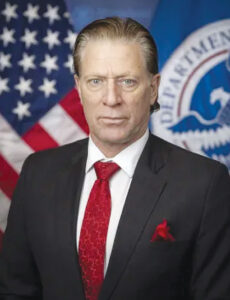By Jondi Gumz
The acting administrator of the Federal Emergency Management Agency was fired May 1 and replaced by David Richardson, assistant secretary in the department of Homeland Security, a Marine Corps veteran who commanded artillery units in Afghanistan, Iraq and Africa.
In a meeting with staff on Friday, FireRescue1 reported that Richardson said, “We’re going to find out how to do things better, and we’re going find out how to push things down to the states that should be done at the state level. Also going to find out how we can do more cost sharing with the states.”
How much states, as opposed to the federal government, should pay for disaster recovery — has been a growing concern as the number of natural disasters increase, often requiring Congress to repeatedly replenish the federal fund that pays for recovery.
In the memos obtained by The Associated Press, Richardson told the agency it would be conducting a “mission analysis” of FEMA to identify “redundancies and inefficiencies” while also clarifying the organization’s “core” mission and “deterring mission creep.”
He succeeds Cameron Hamilton, a former Mavy Seal, who became FEMA’s acting administrator in January succeeding Deanna Criswell, the first female in that role, confirmed in 2021, whose tenure was marked by a dozen critical audits by the Office of Inspector General.
Trump is looking to overhaul the agency that gives states and individuals roughly $45 billion a year to help recover from natural disasters.
Neither FEMA nor Department of Homeland Security, which since 2001 has overseen the agency, gave a reason for Hamilton being fired.
In April, Hamilton sent the White House a six-page memo with options to reduce FEMA’s role in responding to natural disasters.
Hamilton’s suggestion to sharply curtail the number of natural disasters that FEMA would provide help for has drawn widespread attention.
Hamilton was never nominated for the FEMA administrator because he lacks the state emergency management experience required under federal law.
Hamilton became acting administrator because the agency has no permanent administrator or deputy administrator. Both jobs have been vacant since Trump took office.
